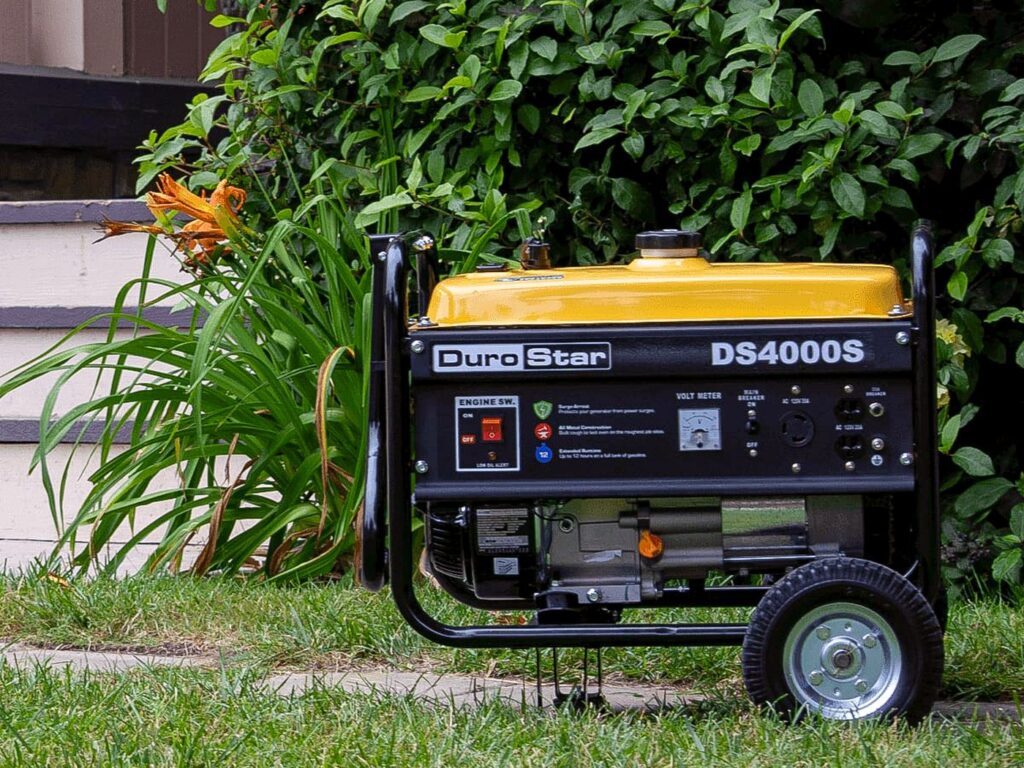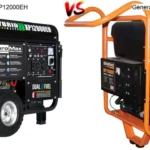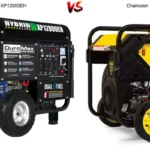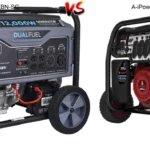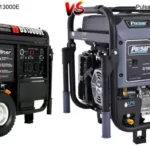Making the decision to purchase a home generator can be a difficult one. Whether you’re looking for a backup generator to provide power during an outage, or a portable generator to provide power for camping or other recreational activities, you want to make sure you’re getting the right one. In this article, we’ll provide a comprehensive review of the different types of home generators, their features, and the most important factors to consider before making a purchase.
Types of Generators
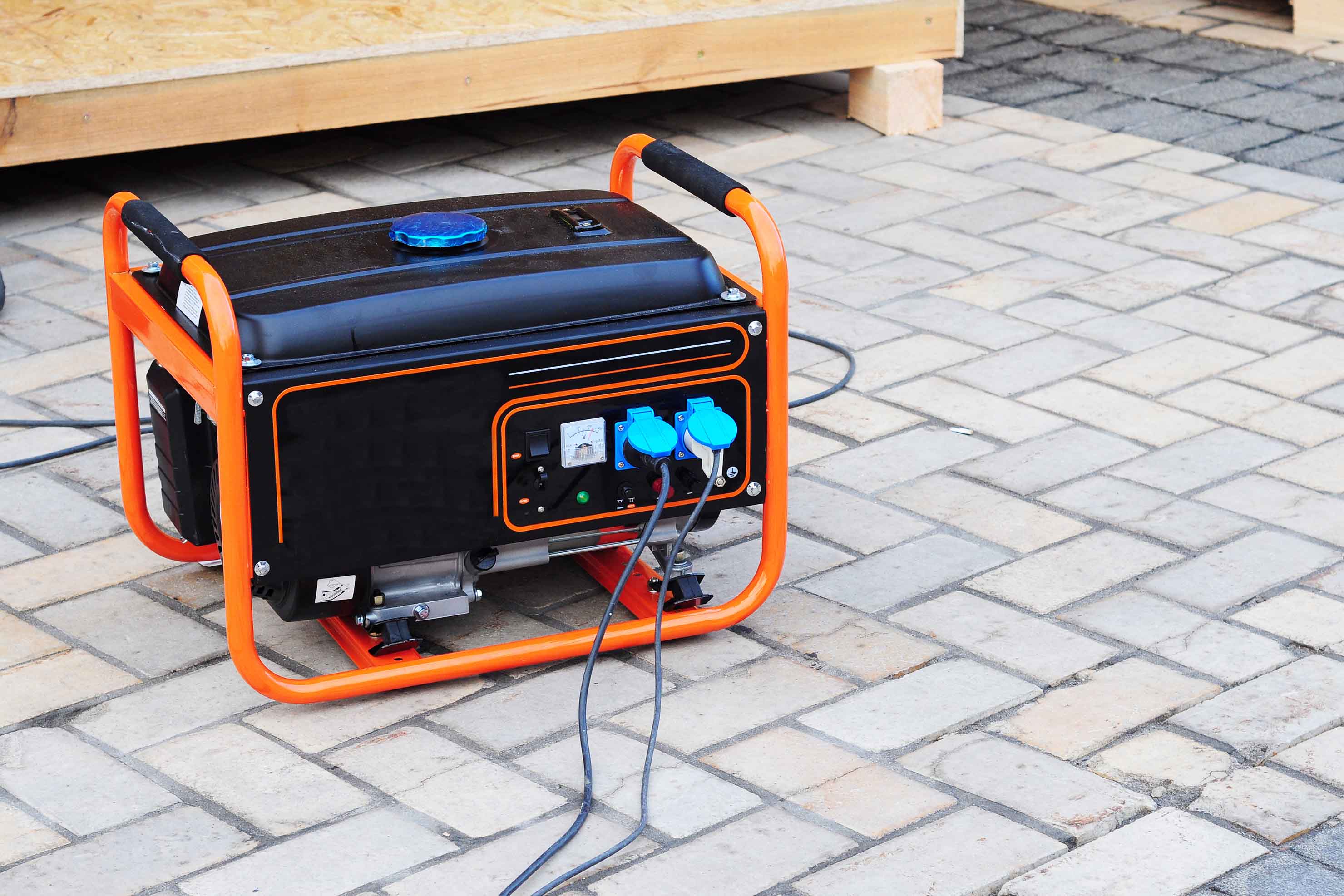
1 Portable Generators
Portable generators are the most popular and versatile type of generator. They are designed to be used for a variety of applications, from powering small electronics to providing backup power for your home during an outage. Portable generators come in a range of sizes and power levels, and are ideal for camping, tailgating, and other outdoor activities.
2 Standby Generators
Standby generators are permanently installed outside your home, and they provide a more reliable and powerful source of backup power. They are connected to your home’s natural gas or propane supply, and are wired into your home’s electrical system. Standby generators are typically more expensive than portable generators, but they provide a more dependable source of power during an outage.
Generator Maintenance

Regular maintenance is critical to ensure that your home generator is running safely and efficiently. Many of the most common problems with home generators can be solved with regular maintenance, so it’s important to stay on top of it. Here are some of the most important maintenance tasks to perform on your home generator:
Oil Change
Oil should be changed every 100 hours or once a year, whichever comes first. Make sure to use the correct type and weight of oil for your home generator.
Air Filter
The air filter should be checked every 25 hours and changed every 50 hours of use.
Fuel Filter
The fuel filter should be checked and replaced every 100 hours or once a year, whichever comes first. Make sure to use the correct type of fuel filter for your home generator.
Spark Plugs
Spark plugs should be checked every 25 hours of use and changed every 50 hours of use. Make sure to use the correct type and gap of spark plugs for your home generator.
Coolant
The coolant should be checked every 25 hours and changed every 100 hours or once a year, whichever comes first. Make sure to use the correct type and concentration of coolant for your home generator.
Battery
The battery should be checked every 25 hours and changed every 100 hours or once a year, whichever comes first. Make sure to use the correct type and size of battery for your home generator.
Other Regular Maintenance Tasks
Other maintenance tasks should be performed regularly, such as checking the fuel lines and hoses, tightening all nuts and bolts, and inspecting the engine for wear and tear.
| Maintenance Task | Frequency |
|---|---|
| Oil Change | Every 100 hours or once a year |
| Air Filter | Check every 25 hours and change every 50 hours |
| Fuel Filter | Check and replace every 100 hours or once a year |
| Spark Plugs | Check every 25 hours and change every 50 hours |
| Coolant | Check every 25 hours and change every 100 hours or once a year |
| Battery | Check every 25 hours and change every 100 hours or once a year |
Generator Installation
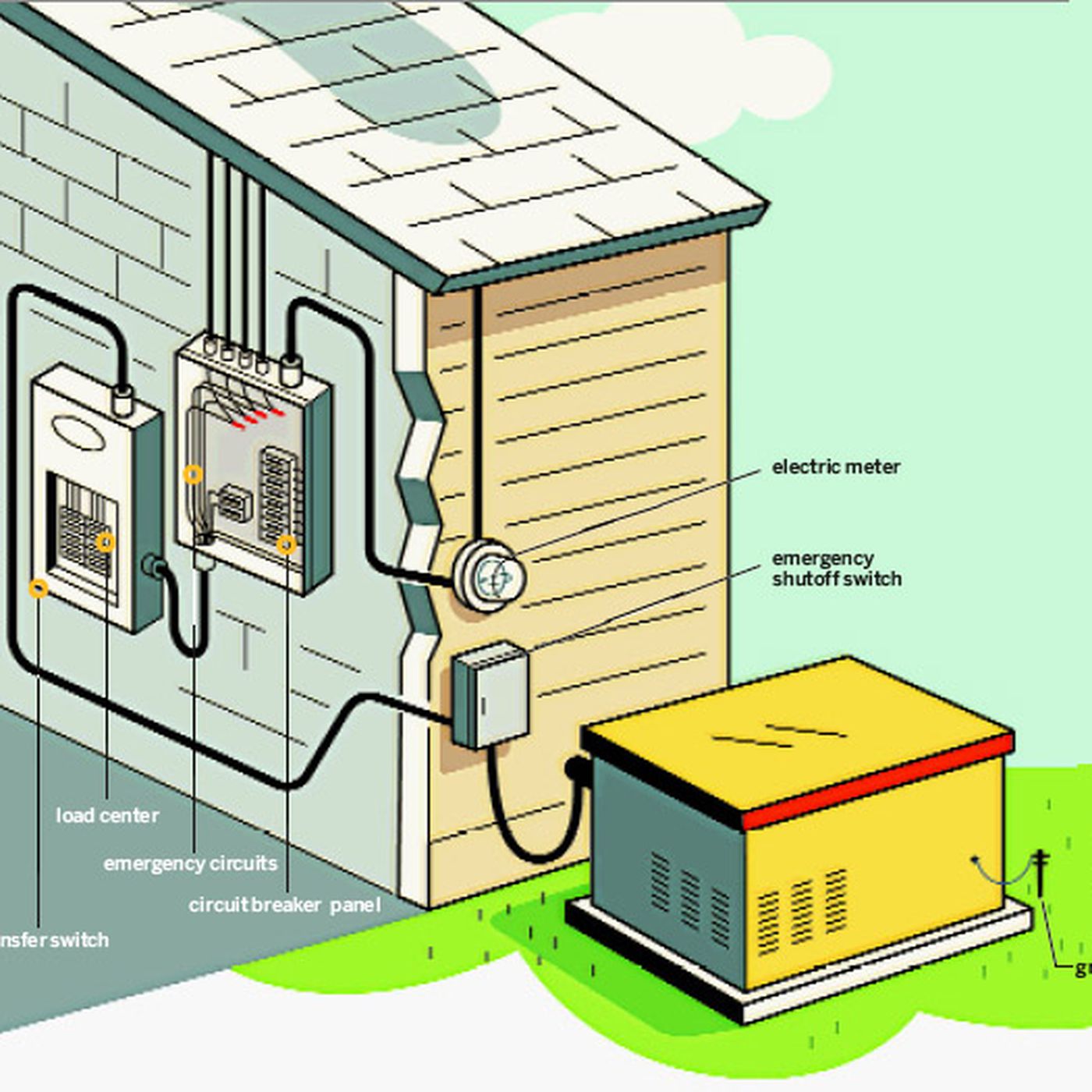
Having a generator can provide power during a blackout or in an emergency. But before you can enjoy the benefits of a generator, you need to have it installed. Installing a generator is a job best left to professionals. A professional generator installation will ensure that the generator is properly connected and that safety measures are taken to protect you and your home.
When selecting a professional for generator installation, make sure to do your research and select one that is experienced in the type of generator you have purchased. The generator should be properly grounded and connected to the main circuit breaker panel. It’s also important to make sure that the size of the generator is appropriate for your home’s power needs.
Before the installation begins, the generator should be inspected and tested in order to ensure that it is in good working order. During the installation process, the installer should perform all of the necessary safety checks. This includes checking for fuel leaks, proper ventilation, and making sure that the generator is away from windows and doors.
After the generator is installed, the installer will then provide you with a manual that explains how to operate the generator. It’s important to read and understand the manual before using the generator. The manual will explain how to start the generator and how to use it safely.
Once the generator is installed and you’ve read the manual, you can enjoy the peace of mind that comes with knowing you’re prepared for a power outage. With the right generator, you can be sure you’ll have the power you need when you need it most.
Generator Cost
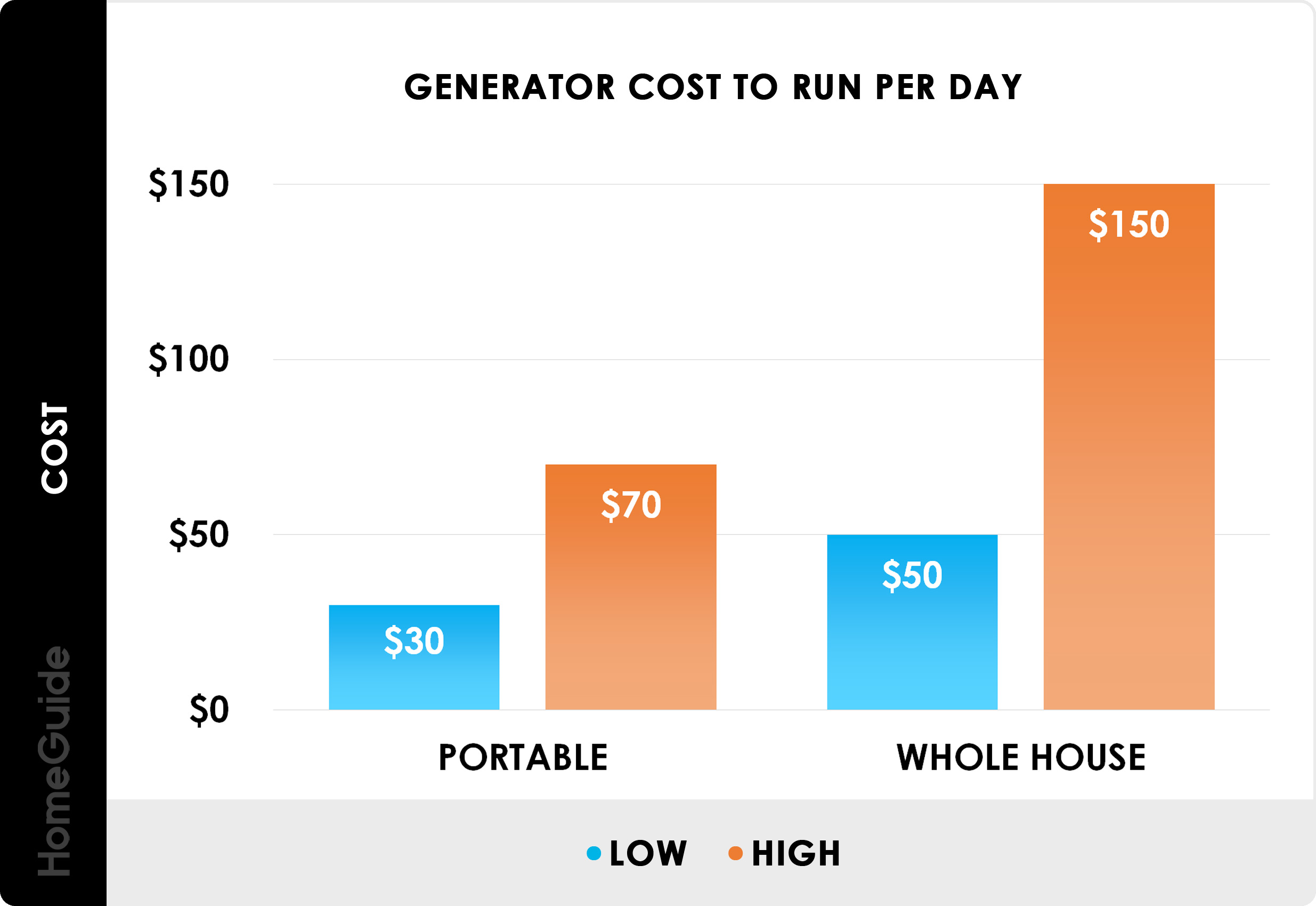
When it comes to purchasing a home generator, cost is a major factor to consider. Generators vary greatly in terms of price, and the cost of a generator will depend on a variety of factors. The size of the generator, the type of fuel it uses, and the features included in the generator are all factors that will influence the cost.
The size of the generator is a key factor in determining the cost. Smaller generators will typically be less expensive than larger ones. Generators that are used to power a small number of appliances or lights will be less costly than generators that are used to power a larger home.
The type of fuel used by the generator is also a factor in determining cost. Generators that use gasoline or diesel fuel tend to be more expensive than generators that use propane or natural gas. Additionally, generators that use renewable energy sources such as solar or wind may cost more than generators that use traditional fuels.
The features included with the generator will also affect the cost. Generators that have additional features such as noise reduction, remote control, or fuel efficiency may cost more than basic models. Additionally, generators that come with a warranty or are certified by an independent testing agency may also be more expensive.
When considering the cost of a generator, it is important to compare prices between different models and brands. Additionally, homeowners should look at the overall cost of ownership when making a decision. This includes factors such as fuel costs, maintenance costs, and any additional features that may be necessary.
Ultimately, the cost of a generator will depend on the size, fuel type, and features included. Homeowners should compare prices between different models and brands to ensure they are getting the best value for their money. By taking these factors into consideration, homeowners can find the right generator for their needs at a price that fits their budget.
Generator Features
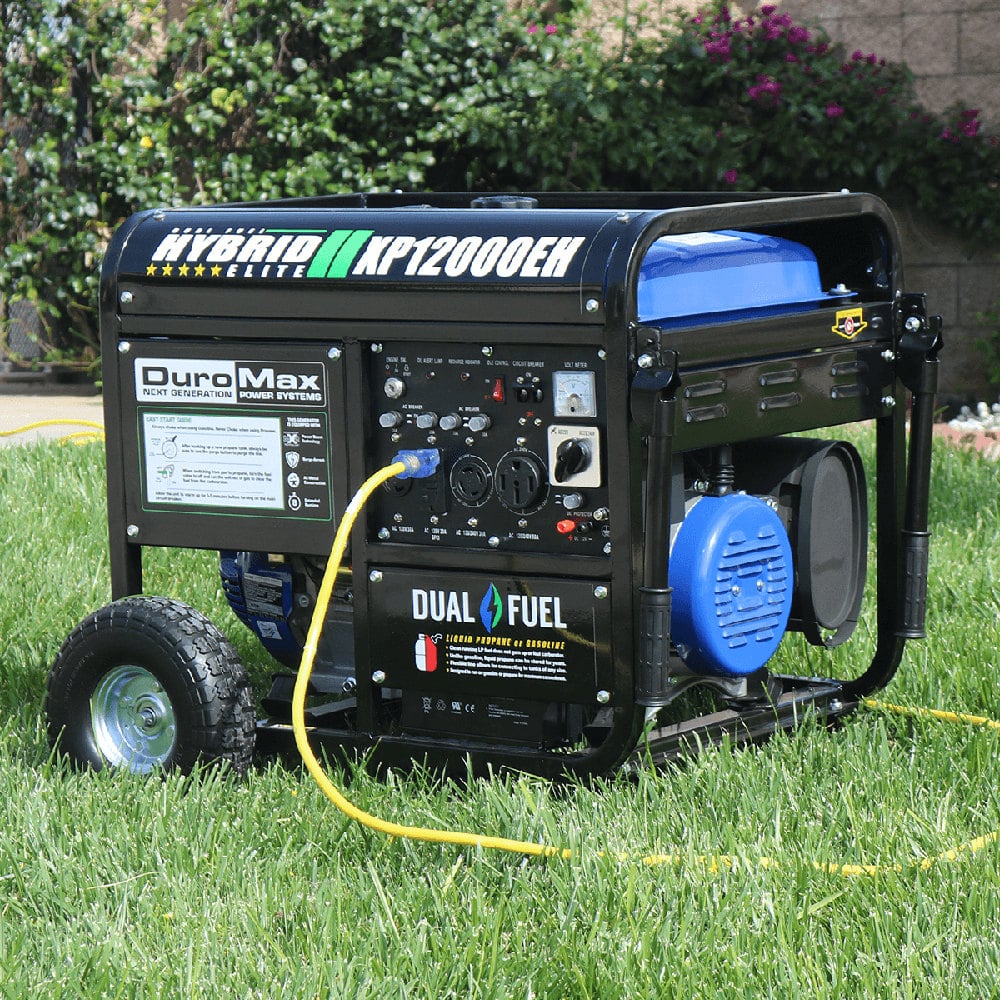
When selecting a home generator, it’s important to consider the features it offers. Here are some of the features to consider:
- Power Output: Different generators have varying power outputs depending on the model. It’s important to consider the wattage and voltage you need for your home and the appliances you plan to run.
- Fuel Type: Generators run on a variety of fuels, including gasoline, diesel, natural gas and propane. Each type of fuel has its own advantages and disadvantages.
- Noise Level: Noise levels are an important consideration when choosing a home generator. Look for models that have lower noise levels, so you don’t disturb your neighbors or your own peace and quiet.
- Portability: If you plan to move your generator around, you’ll want to look for one that’s portable. Look for models that have wheels for easy transportation.
- Size: Generators come in a range of sizes, so it’s important to consider how much space you have available for your generator. Smaller generators are generally easier to move and store, while larger generators can provide more power.
- Safety Features: safety features such as low oil shutoffs and overload protection are important considerations when choosing a home generator. Look for models that have these features to ensure your safety.
Generator Reviews
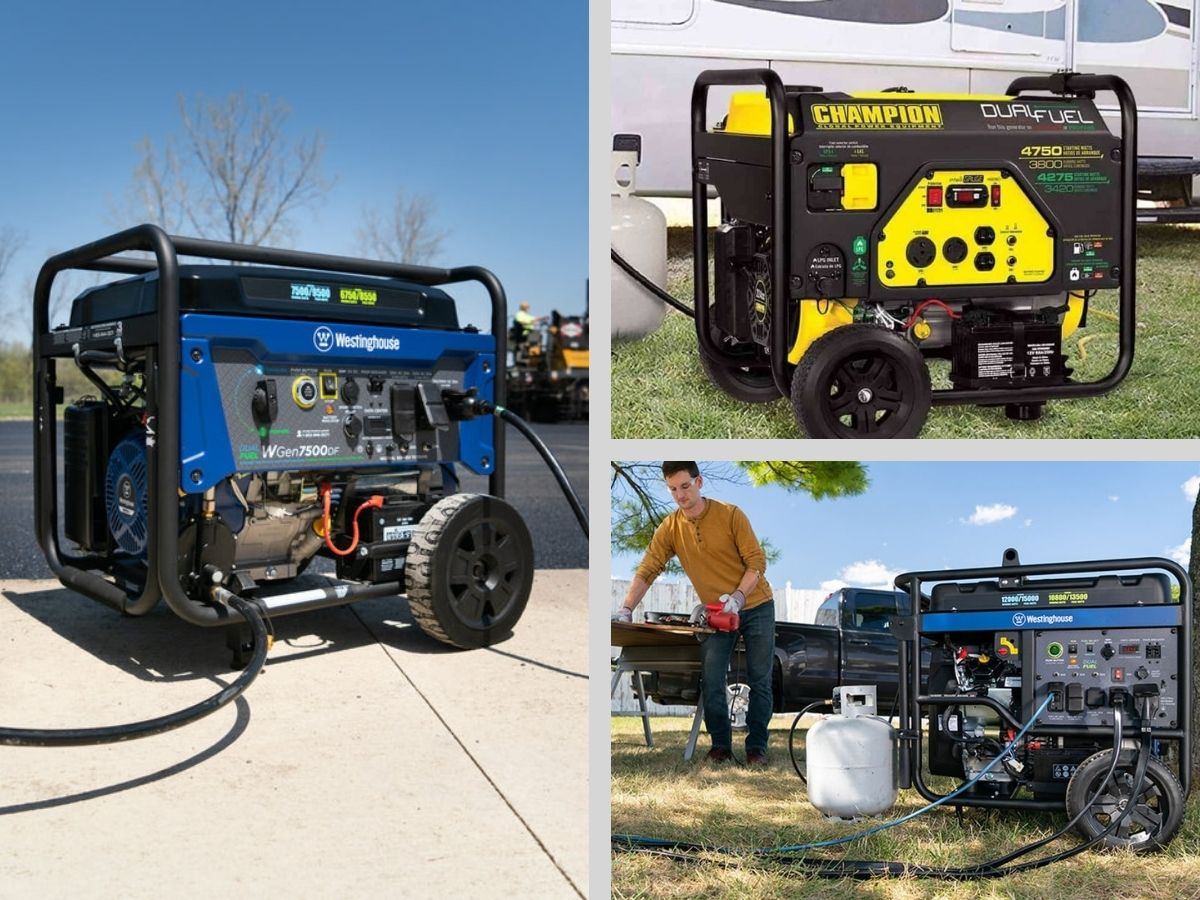
Portable Generator Reviews
Portable generators are a great solution for a variety of needs, from small camping trips to emergency power outages. But with so many models on the market, it can be difficult to decide which one is right for you. Our team of experts has tested and reviewed the best portable generators available, so you can make an informed decision. Read on for our top picks and get ready to power up!
2 Standby Generator Reviews
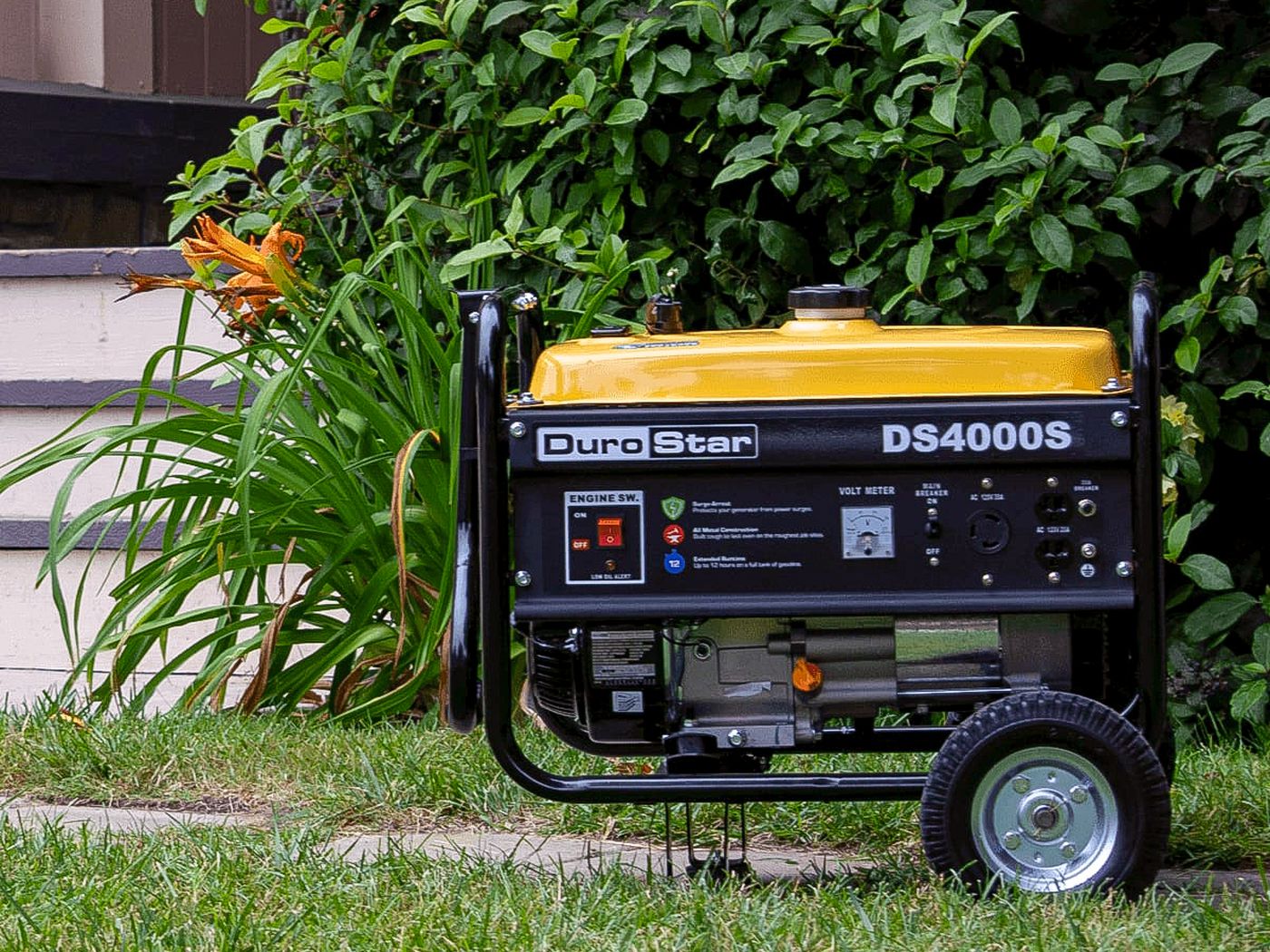
-
Generac Guardian Series 22kW Standby Generator
The Generac Guardian Series 22kW Standby Generator is an excellent choice for homeowners who want to ensure that their home is always powered during outages. This generator is extremely reliable and comes with a 5-year limited warranty. It can produce up to 22kW of power and is equipped with a 200-amp transfer switch for seamless switching between utility power and generator power. The generator also has a noise-reducing design and runs on natural gas or propane. -
Briggs & Stratton 40346 20kW Home Standby Generator System
The Briggs & Stratton 40346 20kW Home Standby Generator System is perfect for those who want to make sure their home is always powered during an outage. This generator is efficient and powerful, producing up to 20kW of power. It is also equipped with a 200-amp transfer switch for easy switching between generator power and utility power. Plus, the generator is equipped with an automatic transfer switch which will start the generator when the power goes out.
Pros and Cons of Generators
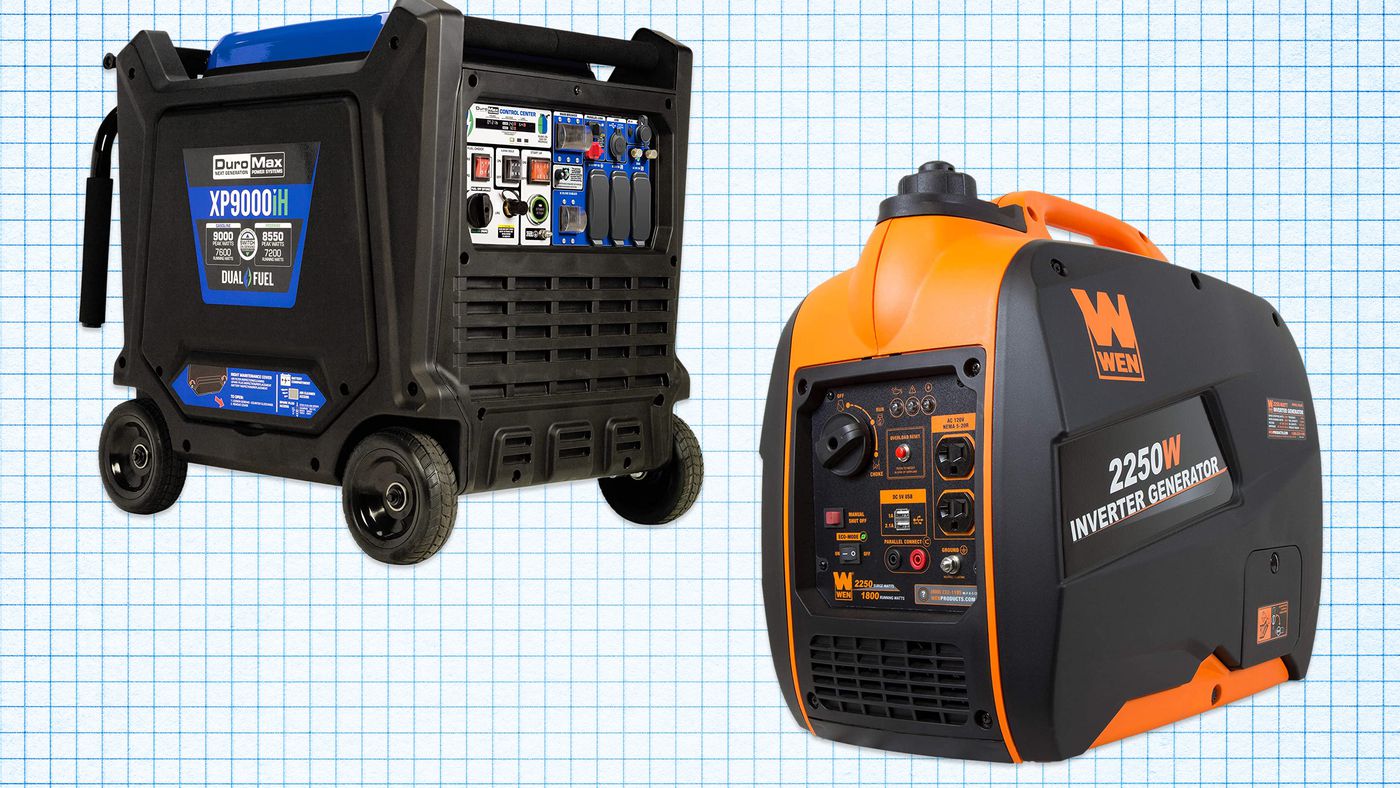
When considering a home generator, it’s important to understand the pros and cons of each type. Generators can provide a reliable source of power when the grid fails and are essential for homeowners who rely on energy for vital appliances. But generators also come with drawbacks, so it’s important to consider both sides before investing in one.
Pros of Generators
Generators provide a reliable source of power in case of a grid failure. This can be especially vital for homeowners with medical appliances, water pumps, or other equipment that require electricity. Generators can also be used to provide temporary power during a renovation or other major project.
Generators come in a variety of sizes and power levels, so it’s easy to find one to meet your needs. Many models offer features such as automatic shut-off and low-noise operation, making them a great choice for any home.
Cons of Generators
Generators can be expensive to purchase and maintain. They also require regular servicing to ensure they are in good working order. Additionally, some models can be loud and produce exhaust fumes, making them less than ideal for certain environments.
Generators can also be dangerous if not properly used. Improperly installed generators can cause electric shock or fire. It’s important to read the instructions carefully and have the generator installed by a qualified technician.
In conclusion, generators can provide a reliable source of power in the event of a power outage, but they come with drawbacks. It’s important to understand the pros and cons of generators before investing in one, and to take all necessary safety precautions.
Generator Buyers Guide
When it comes to selecting a home generator, there are many factors to consider. To help you make an informed decision, we provide you with this generator buyers guide.
First, you should consider the size of the generator. The size of the generator you need will depend on the power required for your home. Generators come in a variety of sizes ranging from small portable generators to large ones that are suitable for powering entire homes.
Next, consider the type of fuel required for the generator. Generators typically use either gasoline, diesel, or propane. Each type of fuel has its own advantages and disadvantages, so it is important to do some research to find out which type is best for your needs.
You also need to think about the noise level of the generator. Generators can be noisy, so if you live in an area with sound restrictions, you may need to look for a generator that has a low noise output.
Finally, consider the cost. Generators can be expensive, so it is important to determine what your budget is before you start shopping. You can find generators of all sizes and power outputs at a variety of price points, so be sure to compare prices to get the best value.
We hope this generator buyers guide has been helpful in your search for the perfect home generator. Be sure to read our home generator reviews for more information on the different models available.
Frequently Asked Questions
1. What are the best Whole House Generators of 2020?
The best whole house generators of 2020 are the Generac 7043 Guardian Series, Briggs & Stratton 40346 and the Champion 3800-Watt Dual Fuel RV Ready Portable Generator.
Generac 7043 Guardian Series:
- 22kW air-cooled generator
- Comes with an aluminum enclosure that is corrosion resistant
- Features a 200-Amp NEMA 3R Transfer Switch
- Comes with a 5-year limited warranty
Briggs & Stratton 40346:
- 20kW air-cooled generator
- Comes with an aluminum enclosure that is corrosion and UV resistant
- Features a 200-Amp NEMA 3R Transfer Switch
- Comes with a 5-year limited warranty and a 3-year parts warranty
Champion 3800-Watt Dual Fuel RV Ready Portable Generator:
- 3800-watt peak power, 3400-watt running power
- Features a dual fuel system, run on either gasoline or propane
- Comes with a 3-year limited warranty and a free lifetime technical support
- Features a cast iron sleeve, low oil shut-off, and Intelligauge
These are the best whole house generators of 2020 that are sure to provide reliable performance and cost-effective power solutions. When choosing a whole house generator, it is important to consider the type of fuel it runs on, the size of the generator, the warranty, and the transfer switch.
2. What should I consider when choosing the best backup generator for my home in 2020?
When searching for the best backup generator for your home, there are certain factors that you should take into consideration.
- Size and power output: Consider the size of the generator in relation to your home’s power needs. A generator that is too large can be expensive and difficult to move around, while one that is too small will not be able to power all of your home’s appliances.
- Fuel type: Most backup generators use either gasoline or diesel fuel, and some may use propane or natural gas. Each type of fuel has its own pros and cons, so you will need to decide which is best for your situation.
- Noise level: Backup generators can be quite noisy, so make sure to check the decibel rating before you buy one.
- Price: Backup generators can range from a few hundred dollars to several thousand dollars, so you will need to determine your budget before you make a purchase.
- Installation: Some backup generators require professional installation, while others can be installed by the homeowner. Consider the installation process before you make a purchase.
- Warranty: Most backup generators come with a warranty, so make sure to read the fine print and understand the terms of the warranty before you buy.
- Maintenance: Backup generators require regular maintenance and servicing to ensure that they are running efficiently and safely. Be sure to factor in the cost of maintenance when deciding on a generator.
By taking the time to consider the size, fuel type, noise level, price, installation, warranty, and maintenance of a backup generator, you can ensure that you are choosing the best generator for your home in 2020.
3. What are the advantages and disadvantages of natural gas portable generators?
Natural gas portable generators are a great option for providing a reliable source of backup power in the event of a power outage. They are portable, easy to use, and can be hooked up to a natural gas line for easy refueling. However, there are some advantages and disadvantages to consider when choosing a natural gas generator.
-
Advantages:
- Natural gas is an abundant, renewable resource that is available in many parts of the country.
- Natural gas is a clean burning fuel that produces fewer emissions than conventional gasoline generators.
- Natural gas generators are generally quieter than gasoline generators.
- Natural gas generators are easy to refuel with an existing natural gas line.
-
Disadvantages:
- Natural gas generators are typically more expensive than gasoline generators.
- Natural gas generators require a connection to an existing natural gas line.
- Natural gas generators may not be available in all areas.
Overall, natural gas generators are a great option for those looking for a reliable source of backup power. They are easy to use, clean burning, and easy to refuel. However, they may not be available in all areas and are typically more expensive than gasoline generators.
4. What are the key factors to consider when reading home generator reviews?
When looking to purchase a home generator, it is important to read and analyze the reviews of other customers to make an informed decision. Here are some key factors to consider when reading home generator reviews:
- Price: Check the price of the generator and see what other customers have to say about the value they received for their money.
- Performance: Read the reviews of others to see how well the generator performs in terms of power output, noise level, fuel efficiency, etc.
- Durability: Find out how long the generator typically lasts and if there are any common issues with specific models.
- Customer Service: Check to see if the manufacturer offers good customer service and if there are any complaints from other customers.
- Reputation: Research the company behind the generator to find out what their reputation is like in the industry.
5. How do I determine the best generator for my needs?
To determine the best generator for your needs, you should consider the following factors:
- Power Output: Consider how much power output is required for your home in order to determine the size of the generator you need. The power output should be greater than the total wattage of all the appliances and tools you plan to plug into the generator.
- Fuel Type: Generators come in several fuel types, including gas, diesel, propane and solar. Choose a fuel type that is readily available in your area and that is best suited to your needs.
- Noise Level: Some generators are very loud, so if you plan to use it outdoors, you should consider getting a generator that has a low noise level.
- Portability: If you plan to move your generator around frequently, you should consider getting a portable generator.
- Price: Set your budget before you shop for a generator and stick to it. Make sure you get the most for your money and that the generator is of good quality.
Once you consider all of these factors, you should be able to determine the best generator for your needs.
Conclusion
When it comes to choosing the right home generator, there are a lot of factors to consider. You should consider the size of the generator, the type of fuel it uses, how much power you need, and the cost of the generator. Additionally, you should consider the noise level, the maintenance and repair costs, and the warranty. With the right research, you can find the best home generator to fit your needs. It is important to do your research before making a purchase so you can make an informed decision. With the right generator, you will be able to keep your home running smoothly and efficiently.
References
- EPA.gov. (n.d.). What Generators Are Available? Retrieved from https://www.epa.gov/emergency-generators/what-generators-are-available
- Generac.com. (n.d.). Generator Buying Guide. Retrieved from https://www.generac.com/buying-guide/generators
- Honda.com. (n.d.). Generator Buying Guide. Retrieved from https://powerequipment.honda.com/generators/buying-guide
- Homedepot.com. (n.d.). Buying Guide: Generator. Retrieved from https://www.homedepot.com/c/buying_guide_generators
